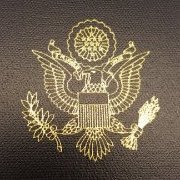British Pensioner Struggles with Frozen Pension in Thailand
-
Recently Browsing 0 members
- No registered users viewing this page.
-
Topics
-
-
Popular Contributors
-
-
Latest posts...
-
9
British Lump of Lard Hauled Off Thai Lion Air Flight
Ok, it wasn't a regional British accent, sounded like a Yank. Also it seems someone gave him a 'wedgie'. 🙂 -
2
Transport Bangkok Airways Halts Key Routes Amid Fleet Overhaul
Perhaps not enough passengers? Lampang Airport currently has just four flights per day - 3 Bangkok Airways (with International code share) from BKK and Mae Hong Son and one Thai Air Asia from DMK. So, in the future Lampang Airport will only have one flight per day? Arrivals Scheduled Revised From Flight Status 09:50 09:44 Bangkok (BKK) Bangkok Airways PG 203 Codeshare: CI 9603 / EK 4466 / EY 7633 / JL 5977 / PR 3708 / QF 3450 / QR 4337 / SQ 5423 / TG 5683 / TK 4447 / WY 5869 Arrived On-Time 12:25 12:36 Bangkok (DMK) Thai AirAsia FD 3923 Arrived On-Time 15:05 15:28 Bangkok (BKK) Bangkok Airways PG 205 Codeshare: AY 6933 / CI 9605 / EY 7668 / KL 3980 / QF 3485 / QR 4430 / SQ 5425 / TG 5685 / TK 4443 23 minutes late 17:55 17:58 Mae Hong Son (HGN) Bangkok Airways PG 206 Codeshare: AY 6860 / EY 7615 On-Time -
19
Great food via mail order??
If you can't find Boar's Head, that Harvey picanha (฿599 or 799 / kg ?) makes a nice roast beef, pictured above, along with giving plenty of fat to render down for tallow for future use. -
46
Should I return to the UK - difficult decision!
Once again, I'm not attempting to compare UK with Thailand with regards to rent or property prices. Go back and read what I wrote. However, in many parts of SW UK a grand will get you a very nice place. -
14
Crime Irish Fugitive Arrested in Krabi After 415 Days of Overstay
It's astounding how easy it is to get into Thailand when wanted by authorities in another country. Like there is absolutely no filter at the boarder, and they only get apprehended after they are allowed in (and only when at the request of the other country's police). -
69
Report Rising Pedestrian Deaths Highlight Urgent Need for Enhanced Safety Measures
What about teaching traffic rules when tested for obtaining driving license? And compelling driving lessons also in the traffic?!
-
-
Popular in The Pub

.thumb.jpg.82631abb512ae61a745d964452c5b1b9.jpg)












Recommended Posts
Create an account or sign in to comment
You need to be a member in order to leave a comment
Create an account
Sign up for a new account in our community. It's easy!
Register a new accountSign in
Already have an account? Sign in here.
Sign In Now